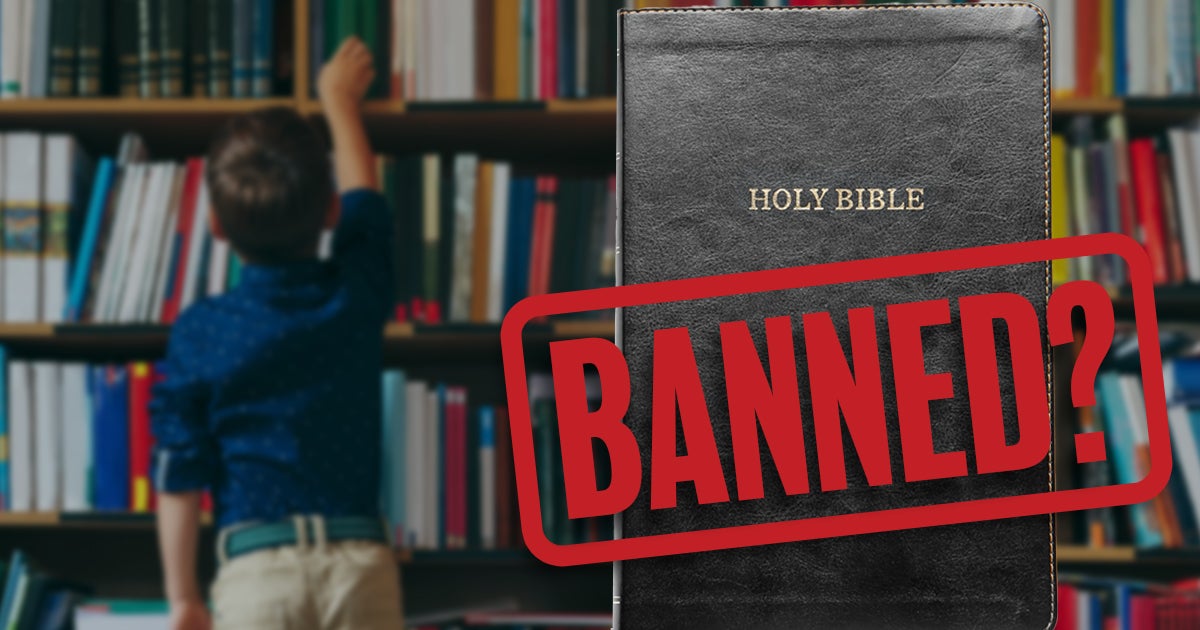
by Jorge Gomez • 4 min read
The Davis School District in Utah is considering whether to ban the Bible from its libraries. The school district received a complaint from a parent to remove the Bible, claiming it is “sensitive” under the state’s Sensitive Materials in Schools law. The parent’s complaint referred to the religious text as “pornographic” and having “no serious value for minors.”
We sent a letter this week to the school district’s Sensitive Materials Review Committee informing members that it is reasonable and legal to keep the Bible in the school district’s libraries. First Liberty attorney Keisha Russell explains:
“The serious educational value of the Bible to secondary students is unquestionable. Far from being inappropriate, many studies have shown that knowledge of the Bible is actually critical to a student’s education. Importantly, it is also illegal for the school district to display hostility toward any particular religion or religious text. The school district must adhere to the law.”
In surveys by the Bible Literacy Project, 98% of high-school-level English teachers agreed that students who do not know the Bible are at a disadvantage when reading and studying English literature. Additionally, 38 out of 39 English professors, representing Yale, Harvard, Princeton, Stanford, and the University of California-Berkley, among others, agree that an educated person must have awareness of the Bible.
What’s more, 80% of parents of teens age 13-17 agree that the Bible is beneficial for their child’s comprehension of art, literature and music. Responding to these statistics, the Bible Literacy Project created a curriculum to teach the Bible academically. Those lessons have been taught to 150,000 students at 650 schools in 45 states— including Utah.
The U.S. Supreme Court previously said that the Bible may be studied for its literary and historic qualities in public schools. In School District of Abington Township v. Schempp, it stated that “one’s education is not complete without a study of comparative religion or the relationship to the advancement of civilization.” It added that “it certainly may be said that the Bible is worthy of study.” Additionally, in Lynch v. Donnelly, the Court said the Constitution “affirmatively mandates accommodation, not merely tolerance, of all religions, and forbids hostility toward any.”
Our attorneys remind the school district to act in accordance with the Constitution. The First Amendment prohibits a school district from acting in a hostile manner toward a specific religious belief. We also remind the school district of its policies, which state that teachers, administrators and other school employees must be neutral toward religion when acting in their official capacities. Our letter reads:
“Consistent with Constitution and district policies, Davis School District libraries have copies of the Bible, the Book of Mormon, the Torah, and the Quran available to check out…Removal of exclusively the Christian Bible for passages of scripture that appear in other religions holy books is unconstitutional hostility toward Christianity that the Constitution does not tolerate.”
Censoring religious speech and perspectives betrays our nation’s founding principles. Not only is it potentially unconstitutional to ban religious books, but it’s also a disservice to our students. America’s schools should be places that encourage intellectual discourse and honest, open dialogue.
The Supreme Court has affirmed that the Bible is worthy of study for its literary and historic qualities. Utah’s Davis School District must take extreme care in its review process. It should follow the law, keep the Bible and make sure its students receive a complete education.